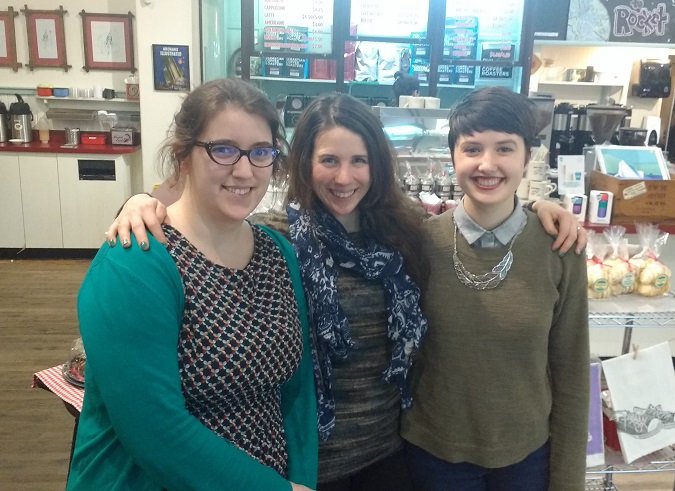Wow – here I am at the end of my graduate degree, already. And yet, it seems like so much happened in the last year. I went to so many classes, had so many conversations with new friends, worked on so many intensive projects, and read so much theory. I think I need a post-degree year where I do nothing but sit on the beach and to try and process everything. Preferably a warm, sunny, beach. With a book that’s not theoretical in the slightest!
So much has happened, and as many students will know, I’m preparing myself for the annual Christmas summary of “how’s school” and the anticipatory “what’s next” that we get from our friends and families back home. It’s helpful, because I’m also at the end of my graduate degree and I need to ask and answer that for myself.
How was school? It was good, and I’m both happy and sad to be done. That’s how I’ll answer, and then I’ll leave it at that for a while. There’s a lot more that graduates can say about how school is, but there’s so much more than a single conversation can contain, and it’s a serious conversation that needs to be had.
But how was school, really? It’s an important question to answer honestly.
It was difficult. It was challenging. It was troubling – graduate level theory in English leaves little space to be protected from complex, difficult, and often upsetting questions, and our department here covered a lot of pressing topics. We immersed ourselves in contemporary issues that have no easy solutions. While we dealt with a lot of theory, none of the questions we asked were ever just academic, especially this year. Faculty in the English department here have a strong, contemporary, and active attitude. The course list this year really reflected that.
There was a lot of resonance with pressing world issues that bubbled to the surface in 2016. We covered the problem of our dependency on oil, in correlation with the oil industry collapse in Newfoundland. We looked at questions of humans in relation to technology and the environment at a time when the impacts of climate change are undeniably stark. Memorial University’s English department hosted the Petrocultures conference late this summer to bring together interested scholars and encourage interest in this area. These conversations will continue next semester with the Petrofictions course, so if you’re interested in the environment from an English lens, I encourage you to take this course!
We also read about issues with race, sex, gender, and economic inequality, in a year when all these were on our Facebook feeds daily and Newfoundland was hit hard with budgets that hurt a lot of low-income people, especially the already marginalized. As students on graduate funding and part-time work, a lot of us struggle, and I think it’s important for us to experience that and think about it so we can better understand how poverty impacts people and society.
A lot of people might not realize it, but an English degree confronts all of these topics, and equips graduates to think and talk about these issues. And the ability to think and talk about them gives graduates the opportunity to have a public voice about them. Our department is strongly supportive of public academic events, so you won’t find a better place to learn and express what you’ve learned to a receptive audience.
An English degree is a little bit of a “save-the-world” type degree. It lets you look at all these things – we don’t just look at canonical texts, we look at the world, and even though no one really says it explicitly as part of the program, we look at the world with the intent to change it, not just examine it.
Of course, it’s not all work and challenges. Here at the end of my degree, I’m looking back at all the good times and wonderful people I met. I built some strong friendships here that will last for the rest of my life, and I’m very grateful to all the supportive people inside and outside of the university. From the faculty who encouraged me to pursue my interests, to the incredible staff in the English office who answered all my questions (especially Maureen Battcock, who answered every question, forwarded every email, and even brought us Hawkin’s Cheesies so we could experience this Newfoundland treat!), to the Newfoundlanders I met this year; the people were the best part of my degree and living here. But don’t take my word for it: come do a graduate degree at Memorial. You won’t regret it.
~Meghan
